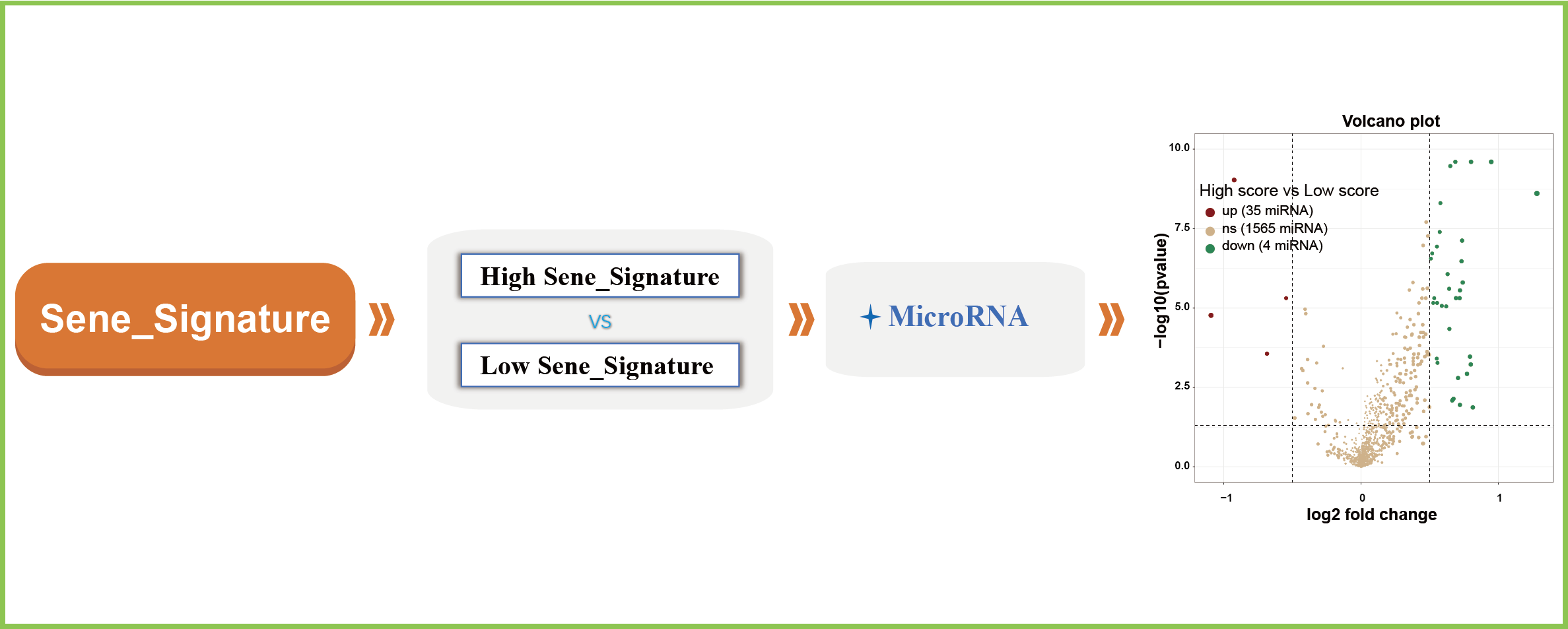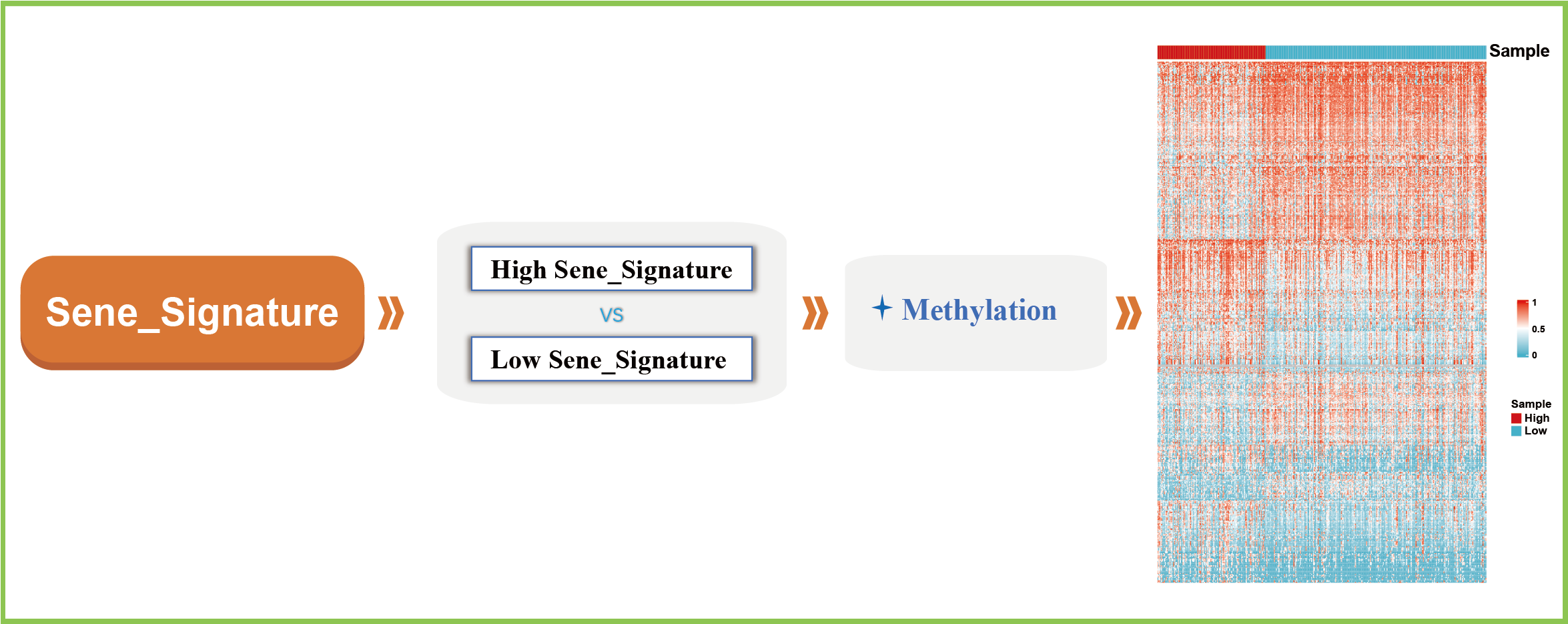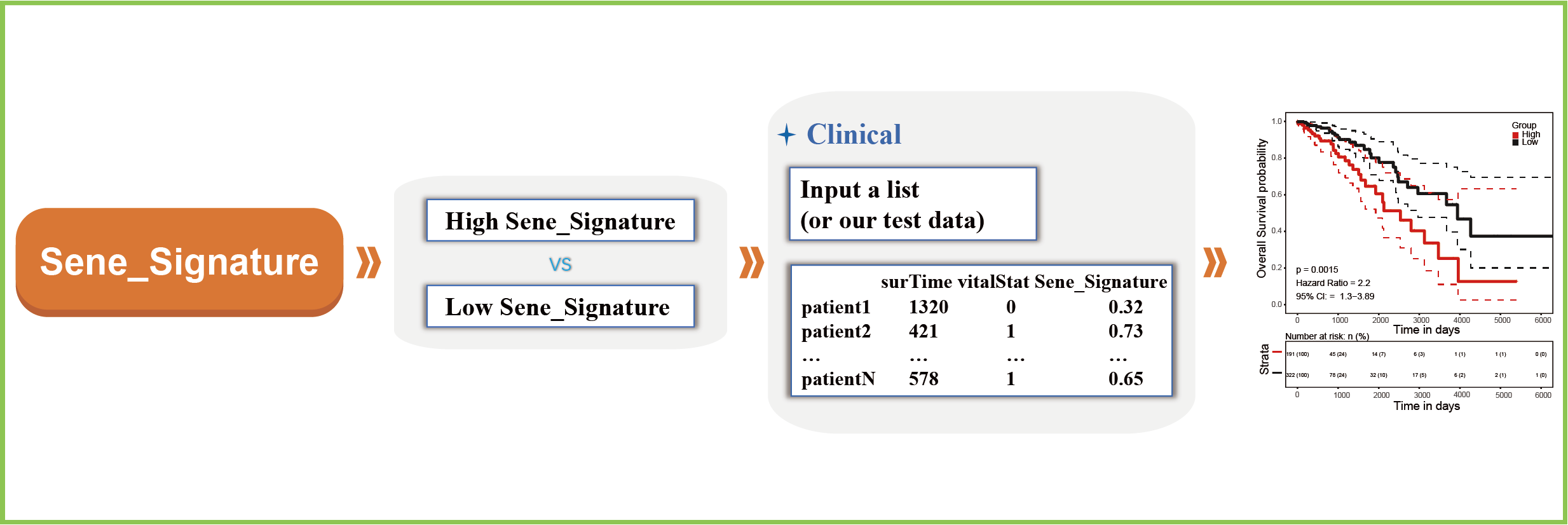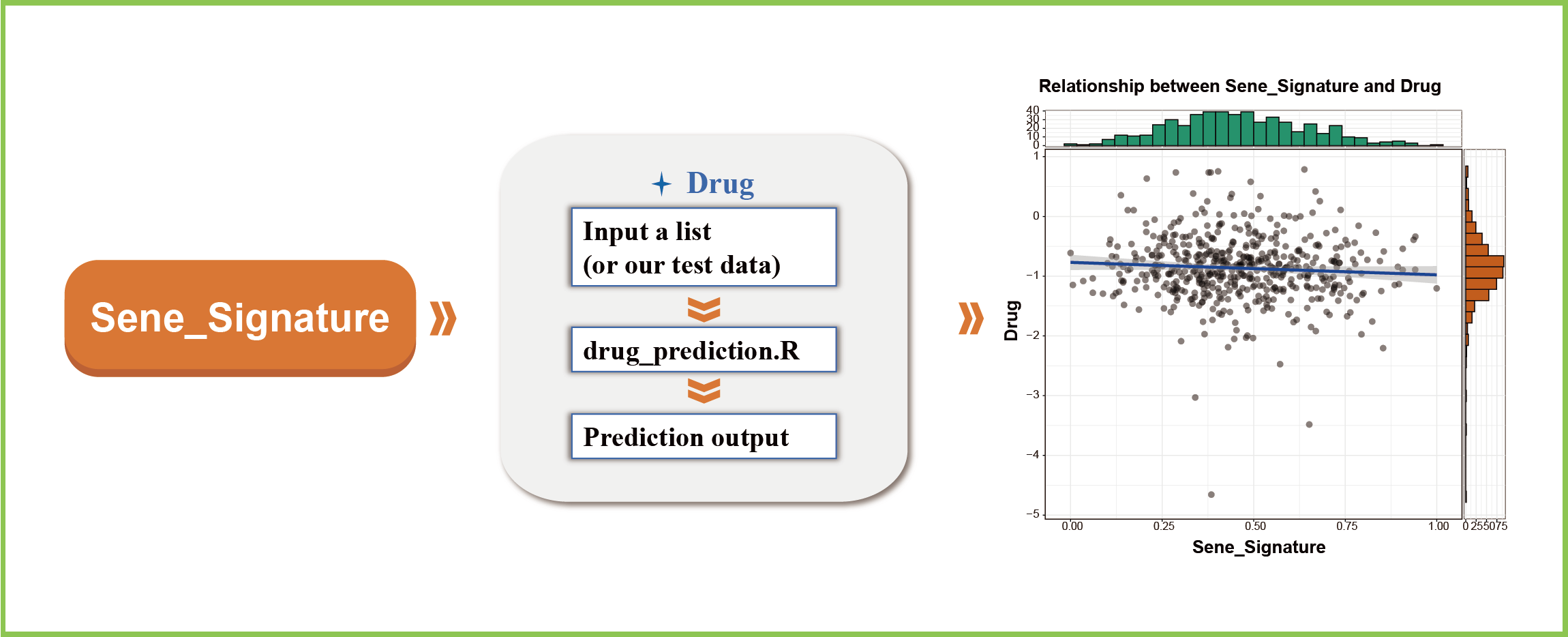Welcome to the Senescence Assessment Research Project Website for Elderly Cancer Patients
About Us
We are an interdisciplinary team dedicated to cancer and senescence research, focusing on understanding the relationship between aging processes and cancer in elderly patients. Our mission is
to explore the molecular mechanisms in elderly cancer patients through in-depth mining of genetic, tissue, and clinical data, in order to find more precise and effective treatment strategies.
Project Overview
Our research project focuses on the "Sene_Signature for Elderly Cancer Patients" - a new research field that aims to use bioinformatics and machine learning algorithms to quantify the level of
aging based on patients' gene expression data. Through this score, we can not only better understand the biological characteristics of elderly patients, but also provide new ideas for individualized treatment.








